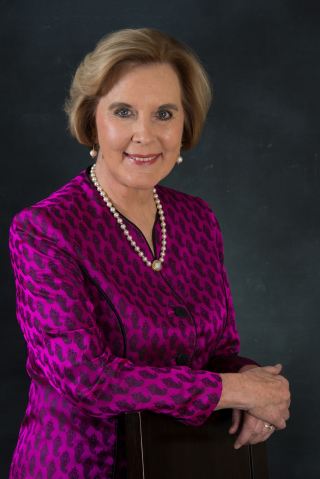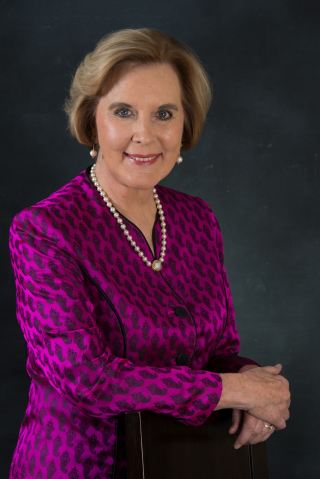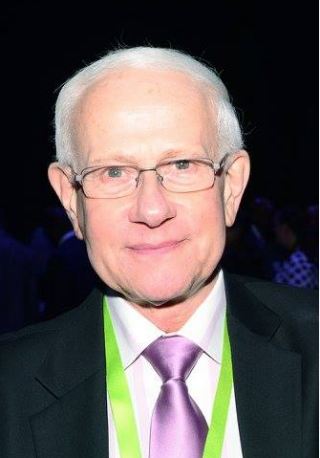The executive assistant: a special cog in the company wheel
It takes a special person to be the executive assistant of a senior manager or director at a large or small company. It is a complex job that leaves no room for mistakes. In a world where artificial intelligence is increasingly taking over jobs and making them redundant, good executive assistants need not worry: it is unlikely that there will be a robot that can be a perfect executive assistant.
Gusti Coetzer*, director: executive search at Signium Africa, that offers integrated talent management solutions to employers, explains how complex the position of an executive assistant can be and how executive assistants can avoid common mistakes.
An executive assistant is the highest level of secretary and will also be honoured this month as we celebrate Secretaries’ Day. The name secretary comes from the Latin word, secretum, that was used to describe someone who worked at the royal court and was a trusted confidante who could be relied on to keep a secret. The role of an executive assistant is exactly the same today: someone who can be trusted and respects the confidentiality of the office.
Traditionally, this important position has been the domain of women, especially since the Second World War when women had to step up and take care of the administration since the men were away at war. Today the pendulum is swinging with more men entering the profession again.However, whether the executive assistant is a woman or a man, they all need the same attributes to be successful.
Certainly the two main attributes are emotional intelligence and attention to detail. Executive assistants deal with many people from all levels internally and externally daily. Therefore they must have emotional intelligence and the skills to read emotional queues and body language to handle interactions in a non-offensive manner.
Executive assistants have a rare perspective on the company that few others share. This is why trust is paramount and why they can act as a sounding board for executives to give them pointers or something to note for the next board meeting.Attention to detail is part of the requirement for executive assistants to see the big picture and gather the foundational knowledge needed to provide valuable insights for executives. Executive assistants need to know what the challenges are in the workplace, what should be changed, who the biggest competitors are and who the team players are.
An executive assistant can never not know something about the company and its people and at times are the chief information officer as well.
This attribute goes hand-in-hand with resourcefulness, to get the job done, no matter what it takes. Negotiation skills are important to get things done. Another attribute that matches resourcefulness is to keep calm under pressure. The executive assistant only gets pressure from the top and has to assimilate it and get results when it is passed on. The buck stops with the executive assistant.
Prioritisation and organisational skills are also important for this cog in the company’s wheel. The executive assistant is the gate keeper for the executive and has to limit distractions and ensure the most pressing issues get attention. This is also where organisational skills help to develop systems that save time in the office.
However, the gatekeeper must not become an obstacle or kill deals. You are not a jail manager, but a conduit for the most important issues in the company. The most common mistakes executive assistants make, especially when they are new in the job, are misreading corporate culture, not building bridges with other executive assistants, not asking enough questions about tasks to be completed, never saying no, taking on too many tasks and speaking out when they should keep their lips sealed.
The mistake of misreading corporate culture can be avoided by building knowledge about the company, while building good relationships with other executive assistants is part of networking.Executive assistants are expected to get everything done in time, but this can only happen if she or he is absolutely sure of what needs to be done and how it should be done. This information can only be gathered by asking penetrating questions until everything is clear.
The inability to say no to more work could be avoided by doing just that: saying no, I cannot do this. Executive assistants should remember that they are not in the position to make friends. They should have good relationships with everyone, but must draw a line to avoid being taken advantage of.
Speaking out about confidential company matters loops back to being trustworthy. Good executive assistants do not gossip, allude to trouble between board members or entertain friends with juicy stories about executives. Trust and confidentiality are probably the most important determining factor in being a successful executive assistant.
This is why robots can never take over the job of an executive assistant. The future might hold fewer positions for executive assistants, but the ones available will require more of the person to fill these big shoes. Executives will always need another human to be there.
*Auguste (Gusti) Coetzer is a Director of Signium Africa (previously Talent Africa), a leading South African-based executive search and talent management company servicing sub-Saharan Africa.
-- ENDS --
Website: www.signium.co.za
Tel: +27 11 771 4800
Don’t be distracted from your pursuit of executive success
By Auguste (Gusti) Coetzer* (www.signium.co.za)
A growing mismatch is becoming apparent between the behaviour of international corporate achievers and their South African counterparts. Offshore, upwardly mobile executives increasingly embrace ‘Deep Work’ and reduce distractions as they strive for quality outcomes and the type of successful track record that ensures progress up the corporate ladder.
In contrast, local executives often spend hours in inconclusive meetings, happily endure distraction via smart devices and seem to accept the curse of constant connectivity and 24/7 availability.
We see distraction aversion overseas versus distraction acceptance locally. What prompts the mismatch? The catalyst was probably Professor Cal Newport’s ‘Deep Work: Rules for Focused Success in a Distracted World’. In the book and several academic papers, he defined deep work as professional activities in a state of distraction-free concentration that push cognitive abilities to their limit.
These efforts create new value, improve your skill and are hard to replicate. Writer and entrepreneur Jason Fried also published several books on the need to exclude distractions as a prerequisite for higher personal productivity and the enhanced ability to deliver at an elite level.
The literature continues to grow as consultants and writers contribute how-to articles on the ways in which achievers can limit distraction, boost productivity and inject meaning and pride into their work through elegant outcomes and quality improvements. Ideas include ‘Do Not Disturb’ signs outside the offices of those committing time to deep work, switching off cell phones, leaving work promptly, limiting the pester power of colleagues who fail to respect personal time and cutting down on meetings and the time spent on emails.
Study of corporate realities in a distracted world highlight worrying trends. For instance, in some cases the email in-tray set daily priorities rather than business imperatives.
Deep work’s attractions were then underlined by studies into the real cost of multi-tasking and revelations that productivity does not rise, but falls as a result of ‘shallow work’. One study suggested task-switching could cut productivity by 40%. Scientists also revealed that dopamine, a substance found in our brains, is depleted by incessant hyper-stimulation. This chemical drives motivation, increases focus and drives us to action.
As deep work caught on, it was found that deep thinking without interruption enabled better concentration and fostered new insights as fresh neural pathways opened up in the brain. Initially, bosses may have been miffed by subordinates who failed to respond instantly to messages. But the rationale (‘I never take calls when I’m hard at work’) was soon taken on board, especially when deep work began to deliver qualitative benefits.
It’s simple enough to test the anti-distraction case. Leave work on time. Switch off your cellphone and smart devices. Enjoy a proper night’s sleep, without having to answer late-night calls. When arriving at work ignore emails. Early in the day after a zero-distraction evening you are rested, relaxed and creative. Use this time for deep work. Emails come later. Contrast the frustration you often feel with your satisfaction after successful immersion in a single task and its completion.
Frustration is often traceable to the time spent taking trivial calls when you should be doing something productive or wasting time in unnecessary meetings. Deep work rescues you from these traps and frees you to achieve … for the sake of the business and your own career.
*Auguste (Gusti) Coetzer is a Director of Signium Africa (previously Talent Africa), a leading South African-based executive search and talent management company servicing sub-Saharan Africa.
Website: www.signium.co.za
Tel: +27 11 771 4800
Issued By: Tale Spin Media & Marketing
Zelda Williams 082 461 0689
Is Doctor Google redefining our professiional Relationships?
By Auguste (Gusti) Coetzer*, Director at Signium Africa www.signium.co.za
Do search engines and other online innovations have the power to redefine professional relationships across industries? The question gathers urgency among corporate achievers looking to take the reins of major companies as an ongoing digital revolution threatens to overturn established business models, even in areas where long-established practice seemed entrenched. Perhaps the biggest single indicator of the impending shake-up is the current rethink of marketing strategies that have traditionally dominated the global pharmaceutical industry.
The old norm was characterised by facetime with doctors, free samples to encourage product trial and perhaps ‘gifting’ to cement relationships between pharma brand and physician. According to industry-watchers in the USA, this model is being overtaken as the medical sector adjusts to new online realities. The pharma industry’s traditional target audience – physicians – confront an online challenge in the shape of ‘Dr Google’ as search engines create instant consumer access to medical information. Online tools called symptom-checkers make it easy for consumers to obtain a DIY diagnosis. Research shows 35% of US adults have gone online to identify a medical condition.
Hypochondria now has a digital equivalent, cyberchondria. As a result, doctors are witnessing huge behavioural shifts, requiring pharmaceutical concerns to do the same. The Journal of the American Medical Association says occasional misdiagnosis by doctors is a concern, though a recent JAMA paper indicated physicians significantly outscore computer algorithms for diagnostic accuracy (84,3% against 51,2% by one measure).
However, flesh-and-blood doctors gave an incorrect diagnosis 15% of the time. Doctors – initially hostile to Dr Google – increasingly look at ways of augmenting their services by the use of digital tools while trying to educate patients to the difference between medical data and medical advice. Some even recommend that patients visit sites that provide credible assistance. Meanwhile, the Google trend and related developments have alerted the pharmaceutical industry to opportunities for a new relationship with medical professionals. Physicians were early adopters of mobile technology, including beepers, pagers,
PDAs, smartphones, tablets and handheld devices for consulting patient records and reference works. As long ago as 2009, one US source put the healthcare sector’s investment in handheld devices and similar technology at $8,2 billion. Clearly, gadget-friendly doctors are open to new avenues for marketing interaction.
The process is already underway. Facebook, LinkedIn and Twitter create space for physicians to organise online communities while US sites like Physicians Interactive and Sermo (for MDs only) reach nearly a million medical professionals. Such platforms enable pharmaceutical companies to engage doctors in new ways. Some pharmaceutical companies are therefore looking to retool their marketing strategies and embrace the cyber-future. Hiring medical communication specialists to engage online with doctors is one route forward.
One marketing consultant says online interventions could help doctors cut information clutter and facilitate links with clinical trials, research papers and opinion-leaders. The retail, hotel and travel industries have already had to adjust to new cyber-realities. A second wave of industries looks set to make similar adjustments. It is little wonder major companies increasingly look for leaders who show acute awareness of digital trends and demonstrate flexibility and a spirit of innovation in the face of change. Being steady and dependable is no longer enough. To lead an organisation into the future, you may have to be radical, even revolutionary, thinking out of the box!
*Auguste (Gusti) Coetzer is a Director of Signium Africa (previously Talent Africa), a leading South African-based executive search and talent management company servicing sub-Saharan Africa. Website: www.signium.co.za Tel: +27 11 771 4800
Issued By: Tale Spin Media & Marketing
Zelda Williams 082 461 0689 | This email address is being protected from spambots. You need JavaScript enabled to view it.
Gillian Schmid 082 960 3233 | This email address is being protected from spambots. You need JavaScript enabled to view it.
Executive retrenchment becoming the new normal
Executive retrenchment..becoming the new normal By Auguste (Gusti) Coetzer* - www.signium.co.za
November 2018
No job is safe, no future secure. That’s the new normal as executives in both the private and public sectors confront a disturbing reality – retrenchment. Executive head-hunters are today witnessing an upsurge in the number of senior candidates who are in the job market for one reason only: recent or imminent retrenchment. The development is not purely local. These days, international candidates with quality CVs often test the South African waters after being blindsided by retrenchment. The drivers are fast-changing technology, tough economic conditions and belt-tightening by private companies and public services. Cost savings are substantial when ‘tall poppies’ are cut.
How should executives react to an environment in which seniority is no safeguard and delayering of organisational structures ensures some top managers, advisers and professionals will be redundant? First, never assume ‘this can’t happen to me’. You may have good qualifications, with good relationships in place, but you can still be thrown under the bus when economic pressures mount and operational losses pile up. With this in mind, begin preparing for retrenchment years in advance. It should be central to personal forward planning. Keep networks, your skill set and friendships in good repair. You don’t want to be the executive who phones old contacts out of the blue, desperate for a favour.
The unspoken reaction to avoid is ‘I’ve not heard from you in years and now you phone me because you want something’. Engage in community or charity work. You meet new people and create contacts outside your industry and profession. You also demonstrate you are a well-rounded person with a sense of social responsibility – ticking an important box when future employers look at the sort of person you are. When developing wider networks or entrenching relationships, be sure your associates are people of integrity. Even a passing connection with unsavoury characters can come back to haunt you. However, no matter how well you prepare, retrenchment always comes as a shock. Self-esteem may take a knock. Emotions come into play. But it is important to proceed logically and methodically. Consult the internet for lists of things to do when facing retrenchment. Some tips may be irrelevant. Others are useful thought-starters.
Check your contract of employment, your insurance cover and income protection policies. Protect your financial position as far as you can. Amend your lifestyle. Cut needless extravagance. Take time for reflection. Where do you go from here? What about an entrepreneurial route? Update your resumé. Consult talent search professionals. Finding a top job may take time. Obtain the best possible assessment of prospects in your field and your situation. Write down your objectives. You might want to remain in your current industry or might prefer radical change, even relocation to a new country. Be mindful of your age should you consider emigrating. Don’t dwell on the past. Be future-focused. Don’t sit and fret. Try to relax and recharge the batteries. Never hide from reality. Share your situation with family, friends, peers, coach, therapist and associates. Listen to suggestions. Stay alert for leads. Retrenchment is not the end of the world. It can be a stepping stone to better things.
This may sound glib, but it’s true … for those who are well prepared, well advised and well placed to spot new opportunities.
*Auguste (Gusti) Coetzer is a director of Signium Africa (previously Talent Africa), a leading recruitment company based in South Africa offering executive head-hunting and leadership consulting - servicing sub-Saharan Africa. www.signium.co.za
Website: www.signium.co.za
Tel: +27 11 771 4800
Shadow director jeopardy stalks SA advisory boards
By *Gusti Coetzer (Signium Africa) and **J Michael Judin (Judin Combrinck Inc)
Advisory boards seem an obvious way forward for companies run by executives with limited global leadership exposure. One of the biggest advantages of advisory boards in South Africa is the facilitation of input and advice from wise old heads. In this way, highly respected, vastly experienced managers can make an important contribution to the company and the new South Africa.At the same time, younger managers and business school graduates benefit from the sort of knowledge not found on an MBA course.So, where’s the potential flaw?The pitfall is found in the grey area between advice and direction or between a general observation and a specific instruction.
If an instruction or direction is given, an advisor may be regarded, for legal purposes, as a ‘shadow director’ and that could spell trouble for any advisor who has not taken out insurance to cover the risks run by formal boards of directors in the event of liquidation or fraud.October 2018Some concepts are so useful in a new nation crying out for skills that widespread adoption is only a matter of time. The danger is that the advantages are so manifest they distract attention from the one potential flaw that could turn a well-intentioned initiative into catastrophe.For example, the coming trend around the establishment of advisory boards carries with it a largely overlooked risk that deserves to be examined in detail before any harm is done.
To explain …Advisory boards seem an obvious way forward for companies run by executives with limited global leadership exposure.One of the biggest advantages of advisory boards in South Africa is the facilitation of input and advice from wise old heads. In this way, highly respected, vastly experienced managers can make an important contribution to the company and the new South Africa.
At the same time, younger managers and business school graduates benefit from the sort of knowledge not found on an MBA course.Some businesses also recruit advisory board members for the ‘halo effect’. They borrow credibility or gravitas as a line-up of advisory board luminaries can smooth the path to the big league and might attract investors or assist in fundraising.Practical considerations also support the trend.Formal board structures are expensive to set up while company directors carry heavy fiduciary and statutory responsibilities.Remuneration of advisory board members is often modest, making these informal structures affordable for young, dynamic companies.In effect, relatively inexperienced executives tap into a wealth of knowledge at a discount while the business benefits from diversity and access to a wider range of opinions.
Of course, an ‘elder statesman’ is sometimes seen as a human Rolodex, with scores of local and international contacts. Gaining access to such a high-level network can be as simple as bringing a senior figure on to the advisory board.Other needs can also be addressed through the use of advisory boards. For example, a company planning to enter new, high-growth markets dominated by black consumers may need the insights of black influencers, who could be recruited to the advisory team.
Young advisors might also be used on an advisory board to lend digital skills to an older board with limited understanding of high-tech developments.For all of these reasons, many companies (and some charities) increasingly ask leading firms of executive ‘head-hunters’ for the names of possible candidates for places on their advisory boards.This can be an easy ‘sell’.Many senior personalities are eager to give back. They are generous with their time and eager to share knowledge with a new generation of business leaders.Advisory board remuneration may not be spectacular but advisors carry no statutory or fiduciary responsibilities.
It’s not a hard slog in the corporate trenches. You’re not giving blood, you’re giving strategic insights.So, where’s the potential flaw?The pitfall is found in the grey area between advice and direction or between a general observation and a specific instruction.If an instruction or direction is given, an advisor may be regarded, for legal purposes, as a ‘shadow director’ and that could spell trouble for any advisor who has not taken out insurance to cover the risks run by formal boards of directors in the event of liquidation or fraud.Advisors found to have acted as shadow directors may be held to be just as accountable as formal directors.The definition in the UK Companies Act is illuminating. It says a shadow director is someone “in accordance with whose directions or instructions the directors of a company are accustomed to act”. Though our Companies Act does not specifically refer to shadow directors, section 1 is broad enough to include the concept in view of the phraseology “occupying the position of a director”.
Risk also applies should a company portray an advisory board member as a member of the formal board.Individuals are also on risky ground if they regularly negotiated on behalf of the company or took on a corporate function; perhaps recruitment of certain specialists or professionals who might have been impressed by the involvement of such a senior figure.Should a firm become insolvent, a liquidator will closely scrutinise the actions of all responsible persons, and this may include members of the advisory board. Much the same applies in the event of fraud.In a worst-case scenario, creditors may target anyone assumed to have ‘long pockets’, including advisory board personalities who apparently acted as shadow directors. The result could be personal bankruptcy.Overstepping the line between advice and active participation in the business can be extremely easy.As the advisor works more and more closely with senior figures, he or she may be consulted quite frequently.
You may think you are simply being helpful by going over a business plan or reviewing financial projections. This may become a habit. After a time, what you say goes on specific issues … taking you into the no-go area where you become a shadow director.If you wish to avoid directorial liability, don’t go there. The good news is that alleged liability only becomes an issue if you functioned as a shadow director. If you simply acted as an advisor while sitting on an advisory board, you are totally in the clear.
*Auguste Coetzer is a Director of Signium Africa (previously Talent Africa), a leading South African-based executive search and talent management company servicing sub-Saharan Africa. **J. Michael Judin is a partner in the Johannesburg law firm of Judin Combrinck Inc. He is a member of the King Committee, a non-executive director of the American Chamber of Commerce in South Africa and co-chairman of a sub-committee of the American Bar Association Business Law Section.
What to do when integrity may get you fired?
What to do when … Integrity may get you fired
By Auguste Coetzer*, Director at Signium Africa (www.signium.co.za)
Rising levels of perceived corruption have sharpened the ethical challenge for those in responsible positions. When the spoils might run into billions, it seems you can be fired for doing the right thing and rewarded for doing what you know to be wrong. How do you stay on the side of the angels, stay in your job … and stay out of jail? The issue receives growing attention. The PwC study, Strategy & Recent CEO Success notes an international rise in ethical lapses and subsequent dismissals at senior level. It attributes the uptick to public outrage at corporate scandals, social media as a platform for experience-sharing and a 24/7 news cycle that makes any cover-up highly problematic.
The topic is also examined by author Ira Chaleef in his book, Intelligent Disobedience: Doing Right When What You’re Told to Do Is Wrong. Intelligent Disobedience indicates the impossibility of being only slightly dirty. You might object to an unethical practice and go along reluctantly, but your ethical lapse can still land you in jail. So, do you simply resign in protest and walk away? Sometimes, this is the only thing to do. You might then go public and become a whistle-blower – with huge personal consequences if you are labelled a ‘trouble-maker’. This is not always a wise move, and is often not necessary.
In a small market like South Africa, industry peers, professionals and specialists in executive recruitment are usually aware of the organisations where leadership is flawed and irregularities are apt to occur. Quitting an operation like this – or being fired for taking an ethical stand – holds no stigma. Your career will often resume an upward trajectory after an initial bump or two. In many cases, however, the issues are not nearly so clear cut. The organisation might decide on suspension rather than dismissal. You can then be pressured to go quietly. In South Africa, there have been cases where senior personnel have been suspended for years, leaving them and their careers in limbo. With this in mind, it may be advisable to avoid an outright rift in the event of unethical demands. Intelligent Disobedience suggests four techniques: Obvious shock. By your tone and facial expression indicate the request has taken you aback. Don’t give an outright refusal (yet). Your demeanour may be enough to prompt a rethink.
The boss or board may backtrack and subsequently abandon the idea without losing face. Seek clarification. Ask ‘Did I understand you correctly? Do you really want me to do this?’ You might even ask for the instruction to be put in writing. (For your own part, never sign any documents sanctioning unethical practices. This puts you in the cross-hairs while guilty parties stay camoflaged.) Suggest a better alternative. There may be a chance other, less dubious, steps could be taken and deliver a positive outcome. Emphasise self-preservation. Use expressions that enable a superior to retreat. Say, ‘This could make us look bad if this comes’ rather than ‘You will look bad.’ Point out that in the social media era, dirty secrets always come out eventually and this will not look good for ‘us’. But, at the end of the day, remember there are worse things than quitting a job or being fired from it … for instance, going to prison.
*Auguste Coetzer is a Director of Signium Africa (previously Talent Africa), a leading South African-based executive search and talent management company servicing sub-Saharan Africa.







